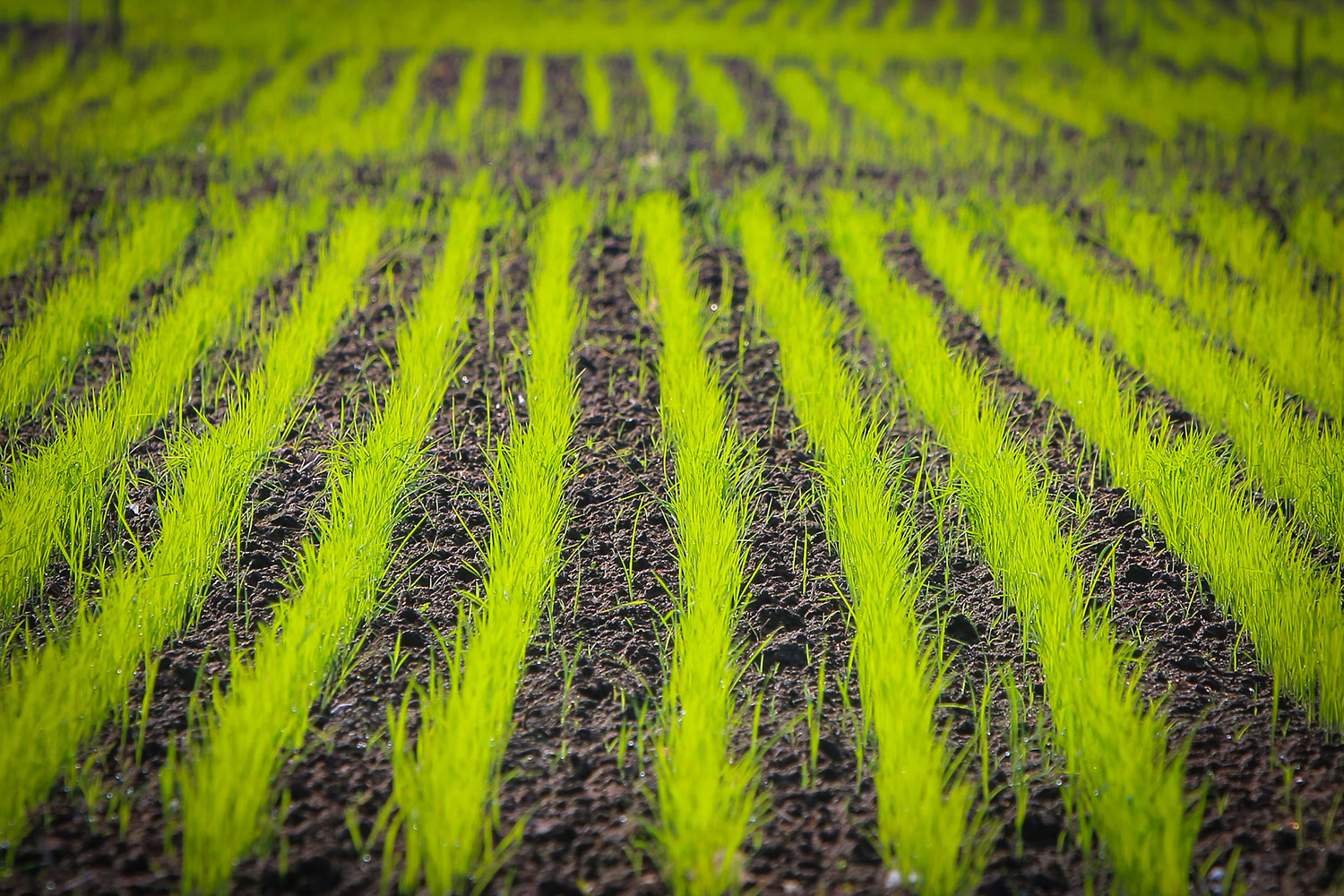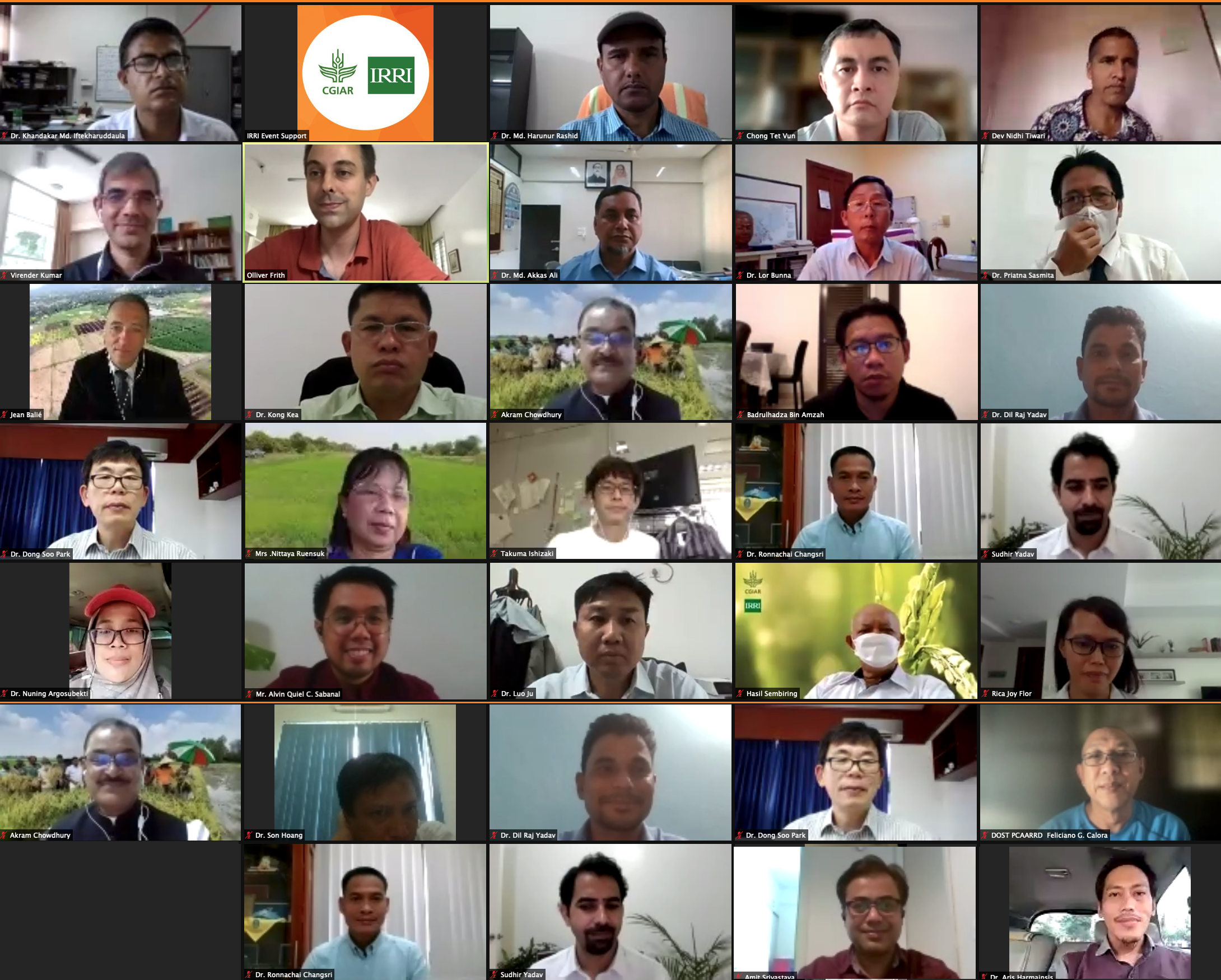IRRI webinar puts emphasis on sustainable intensification of rice-based systems

By 2050, it is estimated that there will be 9.8 billion people in the world. Overall food demand is set to increase by more than 50 percent. Water demand for agriculture, manufacturing, electricity, and domestic use will also rise by 50 percent. Meanwhile, land degradation, pollution, and urban encroachment are constantly diminishing the amount of land suitable for farming. We are faced with the daunting task of having to produce more food for the growing population with less resources while also reducing agricultural greenhouse gas emissions by at least 67% by mid-century to keep global warming temperature rise to below 2℃. To meet this double challenge, sustainable intensification of rice-based food systems needs to play a critical role.
The Council for Partnership on Rice Research in Asia (CORRA) kicked off its CORRA science webinar series on 02 June via Zoom with a presentation on sustainable intensification of rice-based systems. The series is being hosted by the International Rice Research Institute (IRRI).
In his opening message, IRRI Director General Jean Balié emphasized, “The increasing demand for food, depleting resources, and changing climate necessitate crucial shifts in farming practices and innovations that can minimize or mitigate trade-offs while ensuring that rice production is sustainable and equitable.”
Dr. Virender Kumar, Research Unit Leader - Climate-Adapted Agronomy and Mechanization at IRRI, presented collaborative research on rice intensification in Southeast and South Asian countries following diverse strategies—improved system design, closing yield gaps, mechanized and precise direct seeded rice, tailored agronomy, among others.
“Transformative opportunities exist to break the cycle of stagnating yields while reducing environmental footprint,” Dr. Kumar said. “Sustainable intensification does not specify any particular technology. It is a concept which focuses on desired outcomes. It involves better land management, efficient use of resources, and the concept of biodiversity conservation.”
The initial installment was attended by a total of 45 partners from 16 CORRA member countries and almost 100 researchers and scientists from IRRI.

“We commend IRRI and all CORRA members on the work that they are doing on sustainable intensification. We encourage researchers to focus on improving farmers’ welfare by adopting a food system approach to sustainable intensification,” said Dr. Md. Harunur Rashid, Chief Scientific Officer at the Bangladesh Agricultural Research Council.
To complement cutting edge research and innovations aimed at transforming agri-food systems, bold policy decisions will also be pivotal to modify and redirect current incentives towards more public support for environmentally sustainable practices.
CORRA science webinar series provides a platform for enhancing knowledge exchange on topics vital in responding to global challenges. Initial topics identified for the webinar series include digital agriculture, applications of big data in rice research, diversification and optimization of rice production systems, rice straw management, and nutrition security.